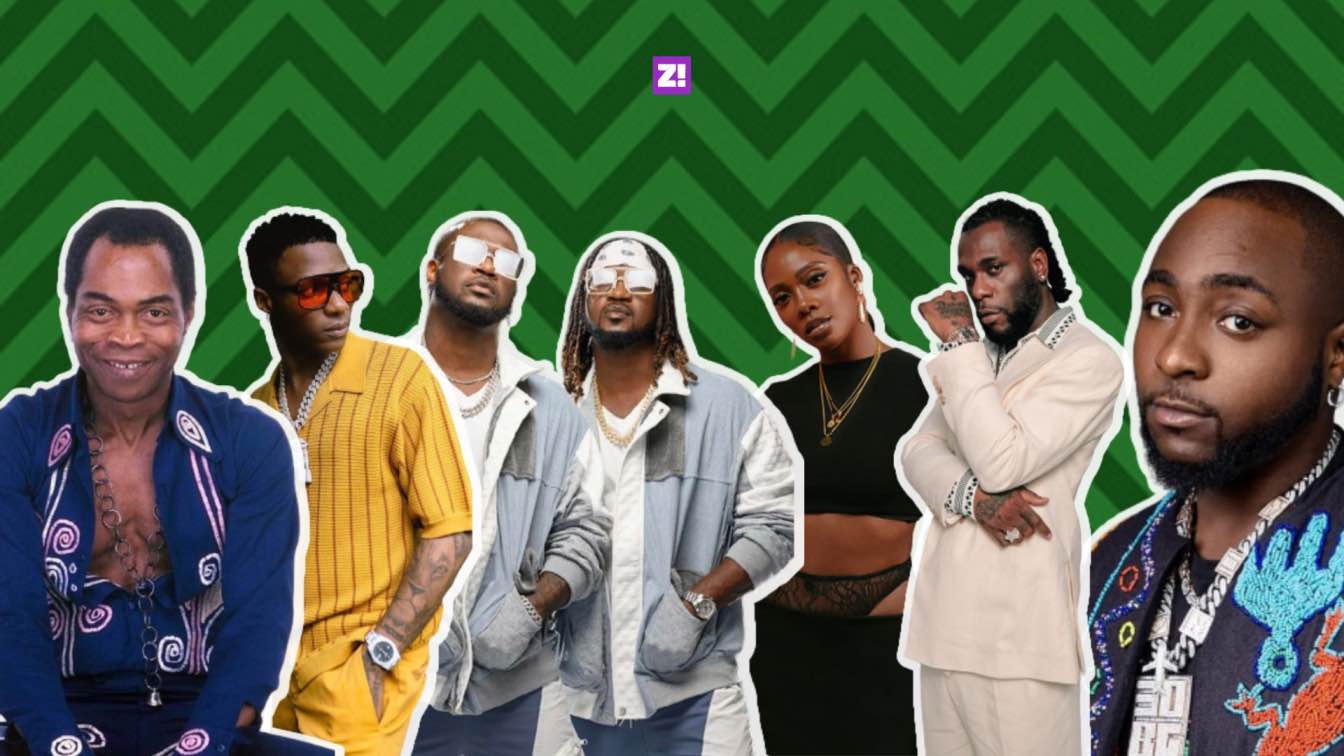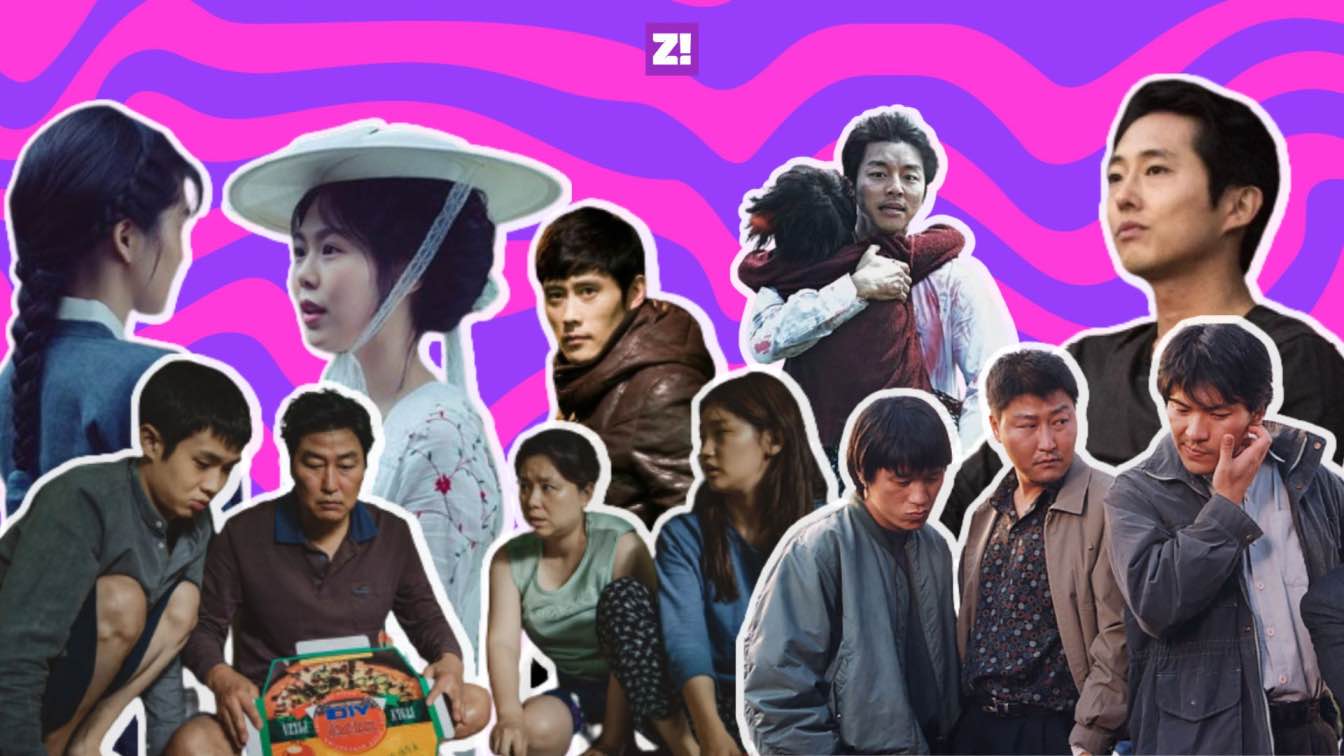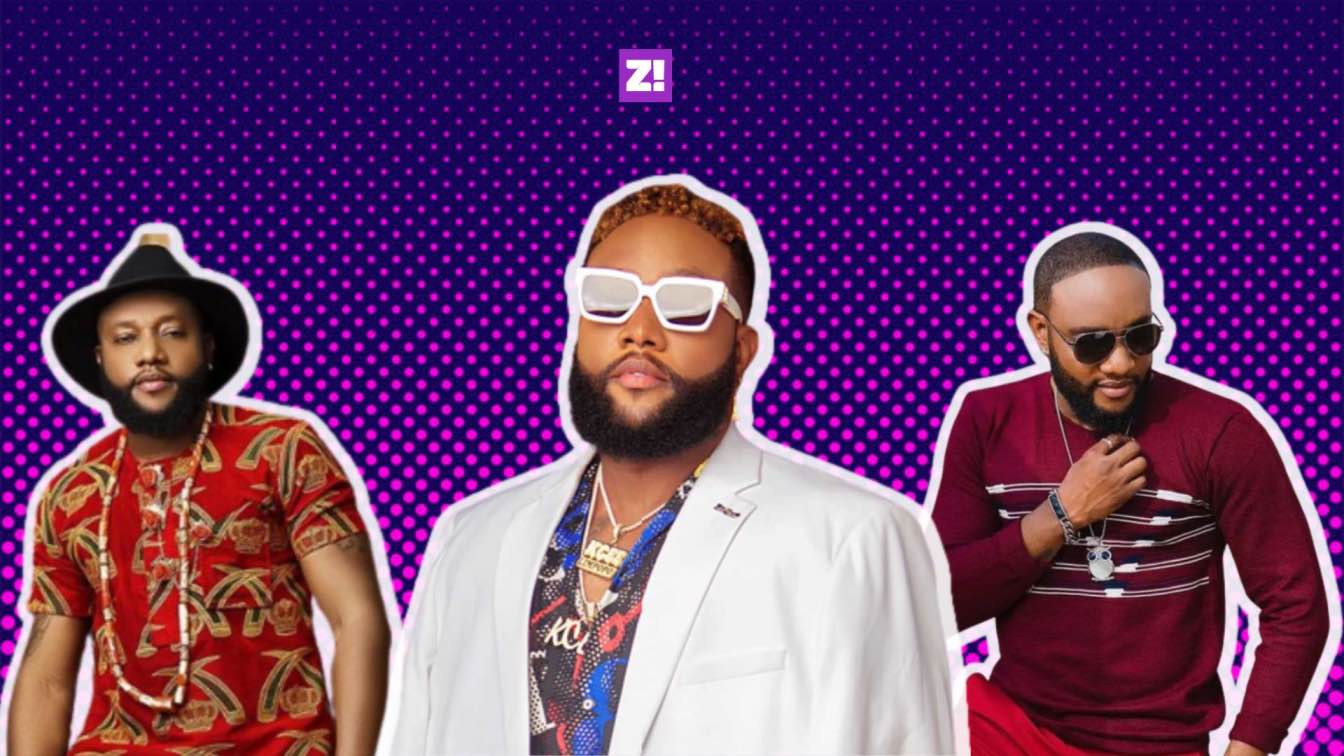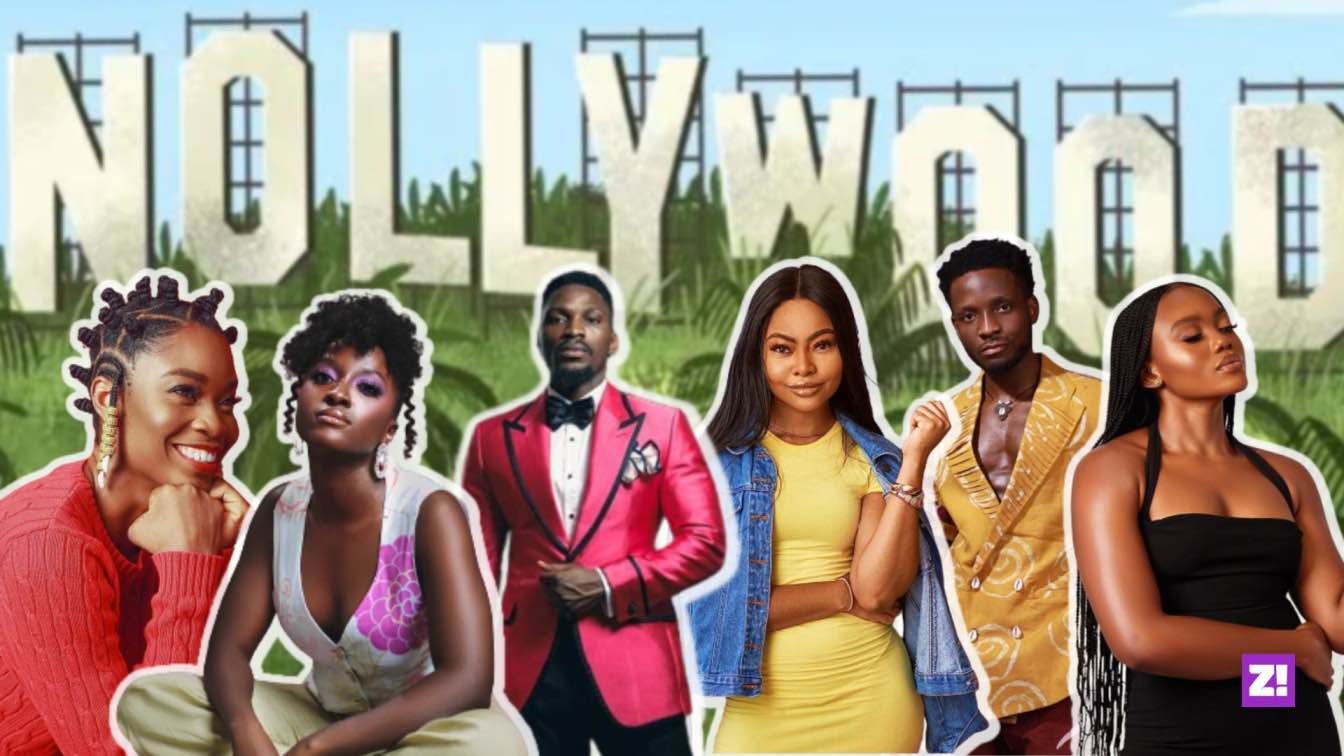What does it mean to be a man? Surely, it’s not one thing. It’s a series of little moments that add up. Man Like is a weekly Zikoko series documenting these moments to see how it adds up. It’s a series for men by men, talking about men’s issues. We try to understand what it means to “be a man” from the perspective of the subject of the week.
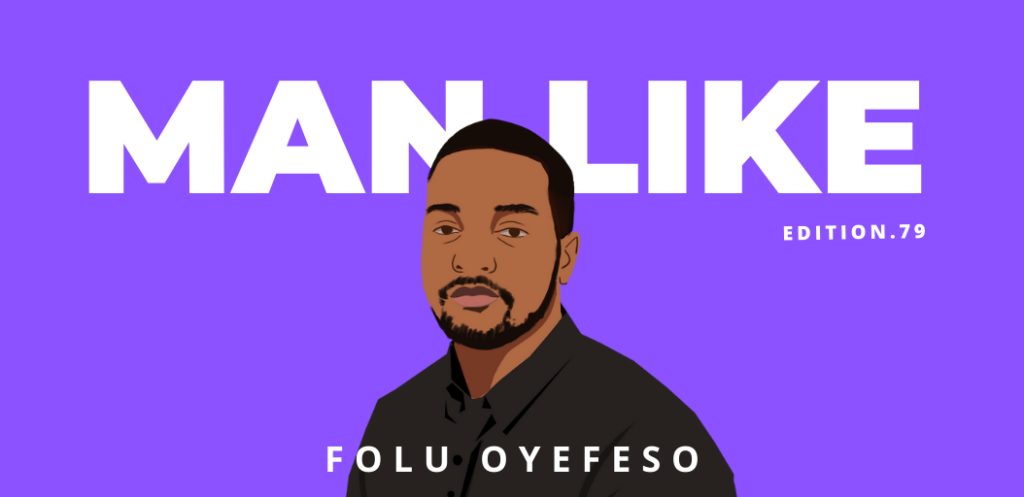
If there’s one thing Folu Oyefeso will do, it’s remind you that he’s living life on his terms. “I don’t care about people’s opinions,” he says at the beginning of our hour-long call. But the more Folu talks about navigating masculinity as a young man living in Nigeria, the more I realise his initial statement stands true only to an extent.
While the photographer and blogger might flip the middle finger to the rest of the world, at his core, he’s constantly searching for a way to do right by the people in his life — his friends and family.
In this episode of Man Like, he talks about the last time he cried, the toxic trait he’s had to unlearn over the years and why most of the gist people have about Nigerian men are true.
Folu, you’ve done this interview thing before. What’s a good icebreaker you use with your subjects?
Hmm. I do my best to make sure they’re in their comfort zone when I’m speaking to them. Get them to be at home or a nice spot they like to hang out and watch all the anxiety disappear.
Ah! So where are you now?
I’m out with my friends in Ibadan. Everywhere is home here.
Whew. So have you always lived in Ibadan?
I grew up here. I only moved away for school and then there was the time I tried to stick it out in Lagos for a bit. These days, I only go to Lagos once in a while to say hi to my people. Ibadan is my original life. Lagos is too stressful for me.
That, we can agree on. So as the thing goes, I have to ask you about the first time you realised you were a man.
When I moved back to Nigeria after university and started living in Lagos. I didn’t realise how expensive Lagos was until I had to start paying for things. I had friends, so there was always one outing or the other, and it was money-consuming. And the truth is, I like expensive things — I don’t want to have to manage, so to afford the lifestyle I wanted, I knew I needed to step up my hustle.
So how did you hack it?
Omo, I don’t think I’ve hacked anything o! I reach my goal, and the next thing, there’s another goal ahead. As my goals change, I have to keep working harder, so I can’t confidently say that I’ve hacked anything.
Outside of money, what was another adjustment you made when you moved back to Nigeria?
In the first few months after university, I took out time to adjust to the mentality here. I was a soft guy who didn’t argue in traffic or queues. But these days, anybody fit collect. Nigeria teaches you not to let people walk over you. I have to always be on my toes so no one takes advantage of me.
I love Nigeria, but not from an “everything is rosy” lens. It’s home for me and has its charm. I’ve lived in Ghana, Canada and America because of school, and I still came back and settled in Ibadan, which most of my friends find hilarious. I want to build my career from here.
Why Nigeria?
As a photo-journalist and entrepreneur, I look at Nigeria as untapped land with a lot of resources and potential to capture. Work aside, it also didn’t make sense to take all the investment my family has poured into my education and offer up to develop another man’s country. If I want to tell authentic stories with my work, it just makes more sense to start from home.
Interesting. As someone who’s lived all over the world, I’m curious about how you view masculinity.
I’d say it’s being confident in whatever kind of man I choose to be and sticking by what I believe to be important to me. I want to own my shit, take care of what and who I’m responsible for, and do right by myself. That’s masculinity for me. It’s not the trivial things like people who say men can’t wear pink or something like that. If somebody feels wearing pink makes me less masculine, then it doesn’t matter to me.
You said “being confident in the man that you choose to be”. What type of man are you?
I have chosen to be a support system for people. I’m the first child of my parents and the oldest cousin in one arm of my family, so I kind of grew up with people always coming to me with their problems. The same thing applies to my friends. I don’t always have a solution, but I make sure I’m there for them in whatever way I can. When my friends talk about Folu, I want them to say, “Folu has our back”. I want to be there for my people.
Doesn’t this get exhausting?
It does get exhausting being everyone’s shoulder to cry on. And one thing I’m trying to learn is that I too can go to these people for support. It’s something I haven’t perfected, but I am working on it. It does get tiring being the only one carrying everyone else’s problem; meanwhile, you have a whole cabinet of problems that need solving. I’m learning that these people are also here for me.
Why do you keep your problems to yourself?
In my case, I can trace it back to social conditioning. I grew up playing a supportive role, so it’s all I’m used to — never to break down or reach out to people with my problems. I’m not even supposed to have problems.
But as I grew older, I realised that everybody goes through some shit, and we can’t go through this life alone. It’s not healthy being my own rock.
Can you tell me about a time you shared your struggles with someone?
I can’t pinpoint one event. I know it’s been helpful for me in the past. They don’t even need to have the solution to my problem. Sometimes, all I need is some advice, a different context or just someone to cry with, who’ll say, ”Man, that shit is fucked up.”
You do usually cry?
I don’t cry often. The last time I cried was when my cat died after a botched surgery. I understand that crying helps other people and it’s healthy, but for me, it doesn’t do much.
So what helps you process your emotions?
Do I process my emotions? That’s the real question. I understand that I should and can be more open, but most times I rely on humour as a coping mechanism. I went on Twitter recently and joked about “It’s almost time for my daily midlife crises”. It comes off as a joke, but I was really going through it. I do that a lot where I decide to laugh about it and hope I’ll be fine. I don’t think it just helps me escape the situation for a while, it doesn’t make it go away.
But what happened to being your own rock?
I know I can’t be my own rock, but like I said, there’s been a lot of social conditioning where I feel, “Oh well, I’m a man”, I’m just supposed to soak this up and move on. A lot of my feelings get shrugged off and it’s not because I don’t have people in my life to talk to, I just don’t want to feel like I’m a burden.
Do you feel like you’re a burden?
I feel it all the time. Luckily, some of the people I do share my problems show they don’t see me as a burden. Maybe because I don’t talk about myself very often. Vulnerability is a side of me that they don’t typically see, so they’re usually quite supportive and appreciative of my honesty.
How has your approach to vulnerability changed over the years?
I’ve had to unlearn some of the ideals I was raised on. I’ve had to let go of homophobia and understand that reacting negatively because someone doesn’t like what you like is stupid.
Why should somebody’s sexuality seem like a threat to you?
How did you move past your prejudice?
I cut off organised religion from my life. When we were young, we used to go to church frequently. But one Sunday, while I was still in secondary school, I just told my mum I felt the whole church thing was a waste of my time. It wasn’t a hard conversation because even though we all went to church, my parents weren’t really religious. These days, they don’t even go like they used to.
I realised that the world is more complex than what some pastor or 3,000-year-old book is telling me. I try to process things, ask questions, and dig deeper. Religion and spirituality are personal to me. And what this means is I have to find my path on my own, without anyone’s agenda. I don’t have all the answers, but I’m very inquisitive. I don’t want to simply take whatever some pastor tells me and dictate my life around that.
It also helped that I lived in other countries and saw that there were people of different sexualities everywhere and the world had progressed beyond what I was used to in Nigeria. Those different factors all came together to affect the way I perceive things.
What would you say is the hardest part about being a man in Nigeria?
There’s a societal burden. A lot of people still believe in gender roles, but I don’t think it’s so black and white where a man is supposed to be one way and a woman is supposed to be another way. It’s 2022 and there are grey areas. No one is born to be the sole provider or stay at home parent. It’s all bullshit. Like I said earlier, I’m also unlearning that mindset about being a man who’s strong for everybody else even when I’m dying inside. Fuck that!
Are there misconceptions Nigerian men that you’d like to dead today?
I don’t think there is any misconception that is not there for a reason. I think everything people are saying about Nigerian men is true on some level. So when they say men are trash, there are definitely some men who are flying the trash flag. Everybody can just be a better person to the next man, and we would be in a better place. As far as misconceptions go, I don’t think there’s any I would change.
A drag. I’m curious about who you look up to on being a man.
A lot of men in my social circle inspire me every day. My dad, my uncle, my grandfather, and a couple of my best friends who are my guys. I’m inspired by how present the men in my family are. It doesn’t matter what you’re going through, once you reach out to my dad, uncles or grandfather, they’ll drop whatever it is they’re doing to be there for you. Even if it’s just to give you urgent ₦2K.
I’m constantly learning from them. I soak up their good qualities and also learn from their mistakes.
What would you say brings you joy these days?
Credit alert. Just having money in my bank account keeps me happy because when I don’t have money, I am really sad. As I grow old and start asking questions like “When am I going to start a family?” or “Can I afford a family?” Those thoughts creep into my mind, but I’m like, “Fuck it. Let me just make my money for myself and enjoy it.”
Money apart, what else do you need to live a happy life in the face of Nigeria’s chaos?
One thing that’s helped me be a balanced individual is the kind of friends I have. I don’t know if I am lucky or attract good people, but I am surrounded by some of the most amazing people on earth. I think that’s the key for me, because there is nothing I’m doing that means anything if I am not surrounded by people I love and who love me. You have to find your support system.
My chest. So what are you looking forward to in life?
This year is shaping up to be interesting. I’m seeing quite a lot of growth in my work. More people are noticing my pictures, so I’m making sales of my pictures and receiving invitations to exhibit at galleries. So I’ll say I’m excited because this year is the next step of my career, which will come with bigger bags and bigger checks. I’m excited about all-around growth.

